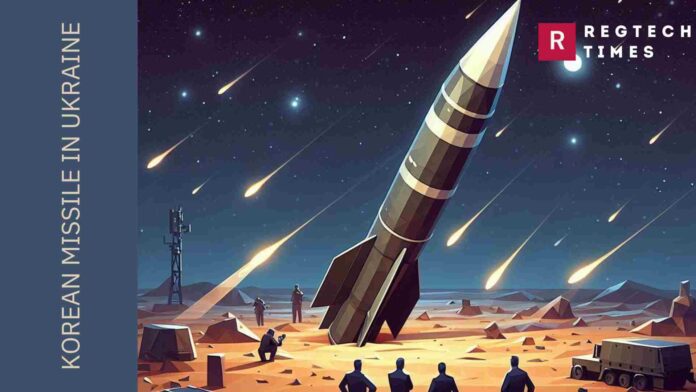The discovery of missile debris from a North Korean missile in the Ukrainian city of Kharkiv has raised questions about the connection between North Korea and the ongoing conflict in Ukraine.
The Discovery of Missile Debris
On 2 January 2024, a missile landed in Kharkiv, Ukraine, leaving behind a trail of debris. A subsequent investigation by UN sanctions monitors revealed that the debris belonged to a North Korean Hwasong-11 series ballistic missile, in clear violation of the arms embargo on North Korea.
Shortly after the 2 January attack, the Kharkiv region prosecutor’s office displayed missile fragments to the media, suggesting that the missile was of a type distinct from those used by Russia. They hinted that it might be a missile supplied by North Korea.
Debris from a ballistic missile strike on Kharkiv on 2 January has been attributed to a North Korean Hwasong-11 missile, according to a report by UN sanctions monitors seen by Reuters. The report suggests that the missile was likely provided to Russia in violation of sanctions.
Despite being under UN sanctions for its ballistic missile and nuclear programs since 2006, North Korea is accused of continuing to develop such weapons and supply them to Russia. Ukraine’s allies have accused North Korea of transferring weapons to Russia for use against Ukraine, which would violate an arms embargo.
The US has further accused Russia of launching ballistic missiles supplied by North Korea against Ukraine on multiple occasions. The Report on Missile Debris is conclusive enough to justify what US accused.
Violation of Sanctions
North Korea, formally known as the Democratic People’s Republic of Korea (DPRK), has been under UN sanctions since 2006 due to its ballistic missile and nuclear programs. The discovery of North Korean missile debris in Ukraine further violates these sanctions, raising concerns about illicit arms trading.
The Russian Connection
While the missile debris was found in Ukraine, the investigation failed to conclusively identify the origin of the launch. Ukrainian authorities suggested that the missile was launched from within Russian territory, potentially implicating Russian nationals in the violation of UN sanctions.
Both Russia and North Korea have denied any involvement in the transfer of weapons. However, the US and other nations have accused North Korea of supplying weapons to Russia for use against Ukraine. These accusations have further strained diplomatic relations between the involved parties.
Military Relations
Despite denials, both Russia and North Korea have pledged to deepen military relations. The discovery of North Korean missile debris in Ukraine adds fuel to the fire, heightening tensions between the international community and the accused nations.
Read More about Russia and North Korea Relationship
- Russia’s Veto on UN Experts Monitoring North Korea Sanctions
- Russia Summons South Korean Ambassador Over Sanctions Tied to North Korean Support Allegations
The Role of UN Sanctions Monitors
UN sanctions monitors are individuals or groups appointed by the United Nations Security Council to oversee and report on the implementation of sanctions imposed by the Council. Their role is to ensure that member states comply with the sanctions measures, which can include arms embargoes, travel bans, and asset freezes, among others. The monitors gather information, conduct investigations, and report their findings to the Security Council, helping to ensure the effectiveness of the sanctions regime.
The UN sanctions monitors, in a 32-page report, determined that the debris found from a missile that struck Kharkiv, Ukraine, on January 2, 2024, originated from a DPRK Hwasong-11 series missile. This finding constitutes a violation of the arms embargo imposed on North Korea.
The discovery of North Korean missile debris in Kharkiv underscores the complex web of international relations and the challenges of enforcing UN sanctions. As tensions escalate between the involved parties, the international community faces the daunting task of maintaining peace and security in the region.


